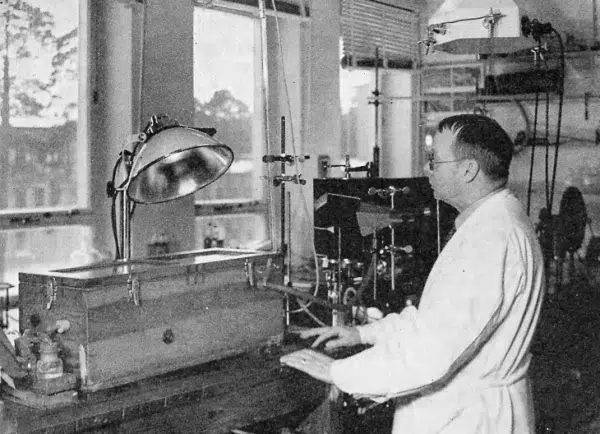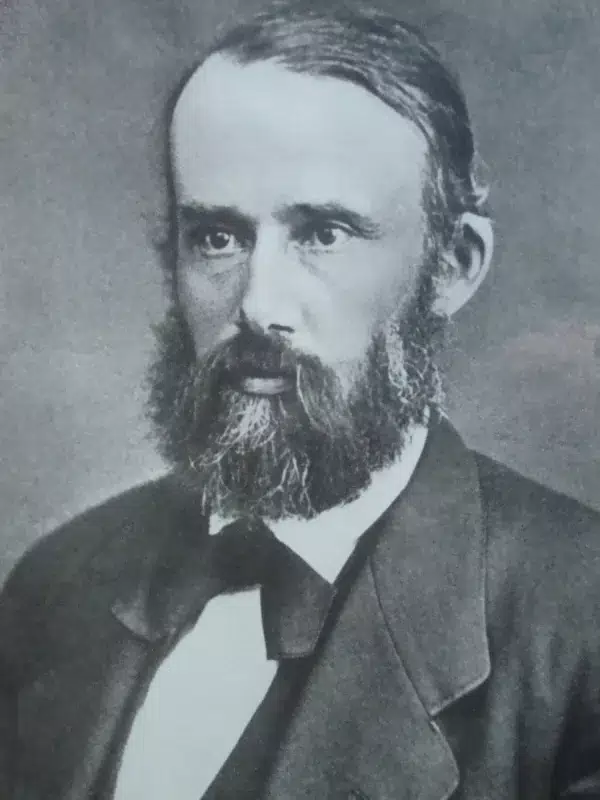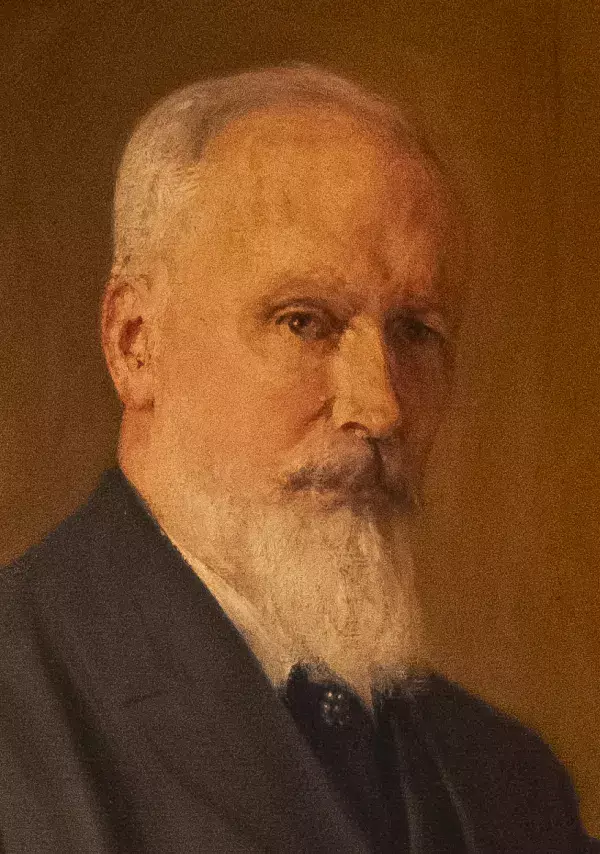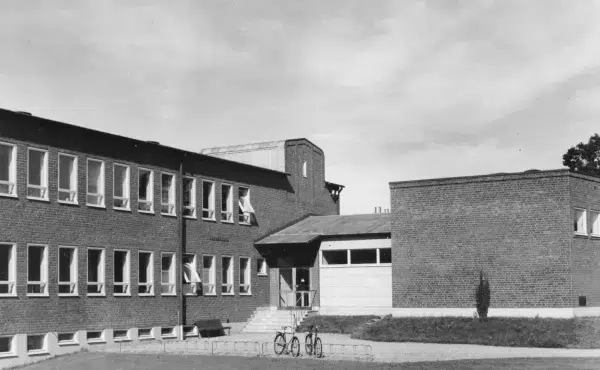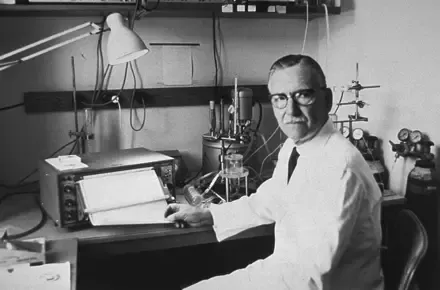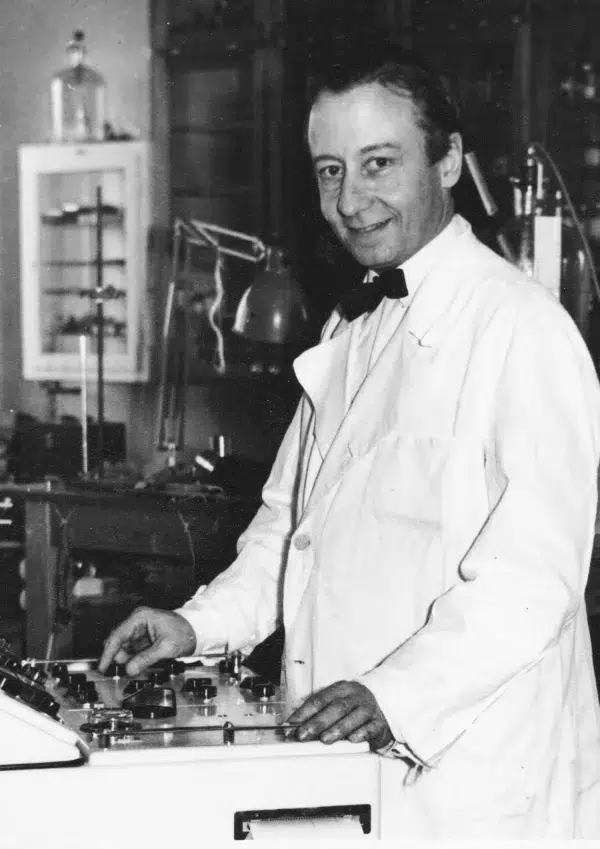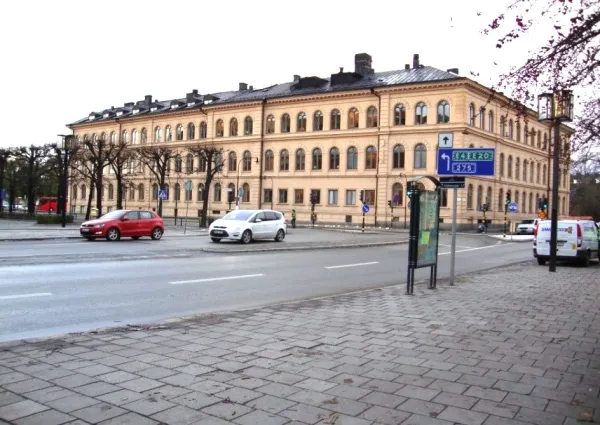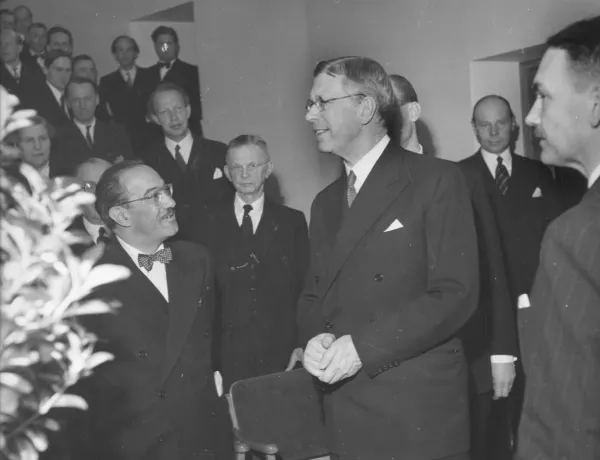The Department of FyFa turns 75
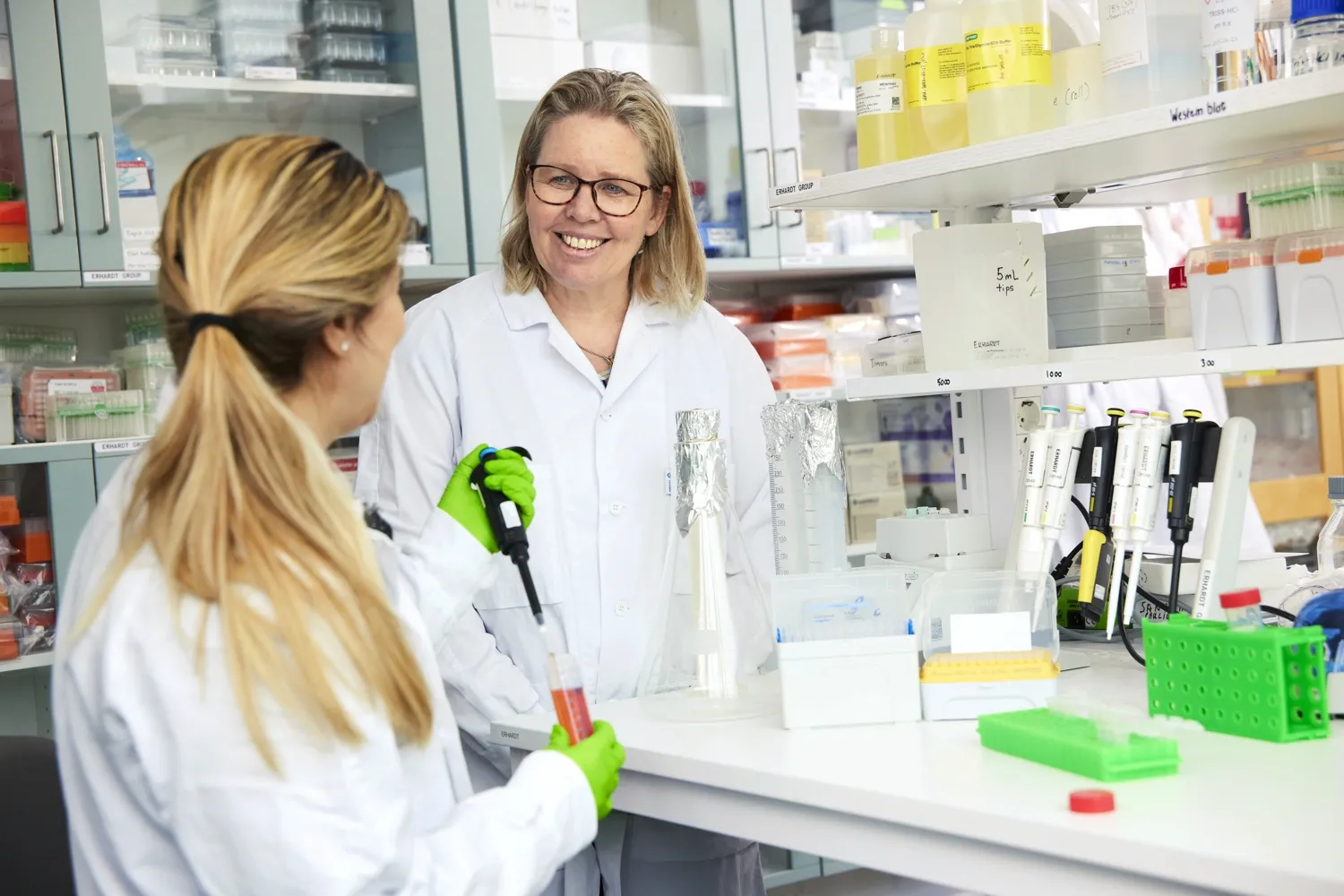
The Department of Physiology and Pharmacology celebrated 75 years since its royal inauguration on the Solna campus during 2024. But FyFa's history goes further back than that - and looks forward to many years of community and outstanding research and teaching. On 23 April, the department celebrates with a full day of lectures and a Dragons’ Den.
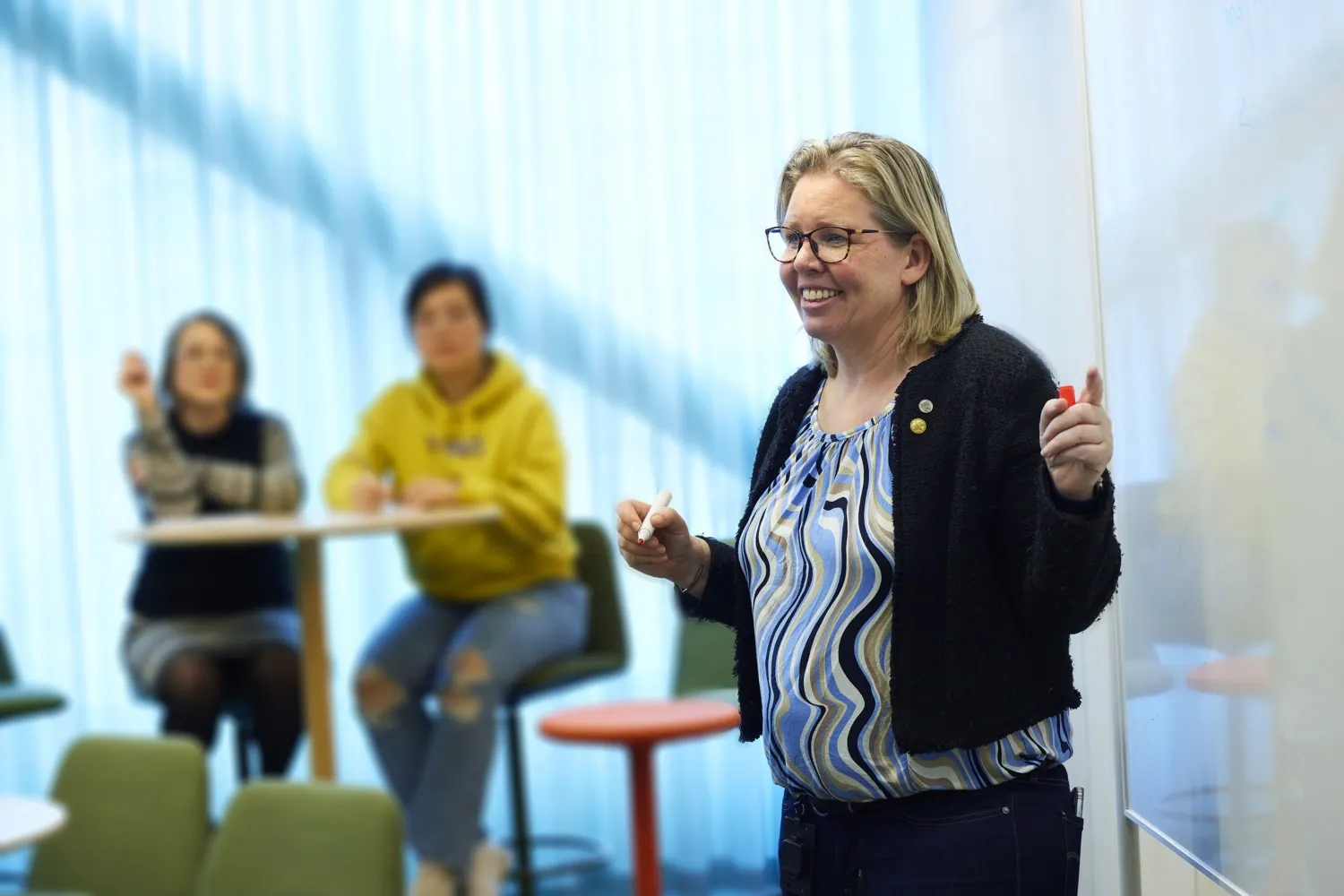
“While Physiology and Pharmacology are very old subjects, we explore them in a modern way. Our interests span from basic research on cellular function all the way to clinical studies in patients," says Sophie Erhardt, Head of the Department of Physiology and Pharmacology, summarising FyFa's activities.
"In short, physiology and pharmacology are core subjects in medicine, which is why we research and teach. We have a responsibility to pass on our knowledge to the next generation, and to create value for society," continues Sophie Erhardt.
Sophie Erhardt came to FyFa as a student in 1997 and did her thesis there. With the exception of a period as a postdoc in the USA, Sophie Erhardt has remained at the department ever since, and in 2022 she became Head of Department.
"From the very beginning, my time at FyFa has been characterised by community, joy, and inspiration - it is always a pleasure to go to work at FyFa," says Sophie Erhardt.
A Nobel Prize and many great discoveries
“There have been so many fantastic discoveries in physiology and pharmacology at the department, and I think it's because we have such an open and warm culture,” Erhardt continues. “We have an open climate of dialogue that drives innovation. There have sometimes been quite heated discussions over the years, but always with respect. We have a strong sense of togetherness and value our core subjects very highly. The dynamic at the department has led to major discoveries, such as the discovery of noradrenaline as a neurotransmitter, which earned the department's professor Ulf von Euler the Nobel Prize in Physiology or Medicine in 1970," says Sophie Erhardt.
More recent advances in FyFa's research include the discovery of exhaled nitric oxide as a marker of inflammation in asthma and the description of the mechanism behind the fact that patients with very severe acute respiratory failure are better able to oxygenate their blood if they are cared for in the prone position, which had a major impact on the care of patients with COVID-19.
"The centrality of teaching is also a distinctive feature of FyFa," says Sophie Erhardt and continues: "All professors and associate professors at FyFa are active lecturers; it is important that teaching is strongly linked to research.”
Timeline
1810 KI was founded
1866 The Department of Pharmacology was founded
1874 The Department of Physiology was founded
1949 The departments were inaugurated in Solna
1970 Ulf von Euler was awarded the Nobel Prize in Physiology or Medicine
1993 Merger of the Departments of Physiology and Pharmacology - FyFa
2005 Merger with Anaesthesiology and Intensive Care Medicine
2018 FyFa moved to Biomedicum
FyFa's history dates back to the 19th century
The Department of Pharmacology was founded in 1866 and the Department of Physiology was founded in 1874, when Christian Lovén became the first professor of the subject. The two subjects have always been close together and both researchers and students have moved between the departments over the years.
Until the mid-1940s, Karolinska Institutet was located on Kungsholmen, near Stockholm City Hall and the former Serafimerlasarettet. During the late 1940s, construction of the current campus in Solna began, and in 1948/1949 buildings were completed for the departments of physiology and pharmacology.
The two departments were jointly inaugurated with pomp and circumstance on 23 April 1949. The inauguration was attended by Crown Prince Gustaf Adolf, later King Gustaf VI Adolf, Nobel Prize winners and other prominent people.
In 1993, the departments merged and became “FyFa”. In 2005, anaesthesiology and intensive care became part of the department and in 2018 the move to Biomedicum took place, where FyFa is located today.
Celebration with a Dragons’ Den
The jubilee offers a variety of celebrations. During the actual anniversary day on 23 April, a full day will be held for invited guests and representatives from the department. Furthermore, the anniversary will also be visible on the website and in Biomedicum, and a new publication on the history of FyFa will be published in connection with the anniversary.
The programme on 23 April will include lectures on FyFa's history, a look at research today and a "Dragons' Den" where experts will select the winners of a competition for the best innovation idea.
Making a difference for the individual
So where will FyFa be in another 25 years when it celebrates 100 years?
"I think we are a department that has become even stronger and found the balance between teaching and research, where we are at the centre of educating new researchers in physiology and pharmacology. That we are an important player in the field in Sweden and in the world. That we make a difference for the individual and the patient," concludes Sophie Erhardt.
Did you know that FyFa …
- conducts research in physiology and pharmacology, as well as anaesthesiology and intensive care.
- has about 90 doctoral students and 22 professors and associate professors - 50 per cent women and 50 per cent men.
- teaches around 2 500 students each year
- is responsible for 1 master's programme, 30 courses within other programmes and 7 stand-alone courses.
- has many international collaborations and works closely with the Swedish health care system.

